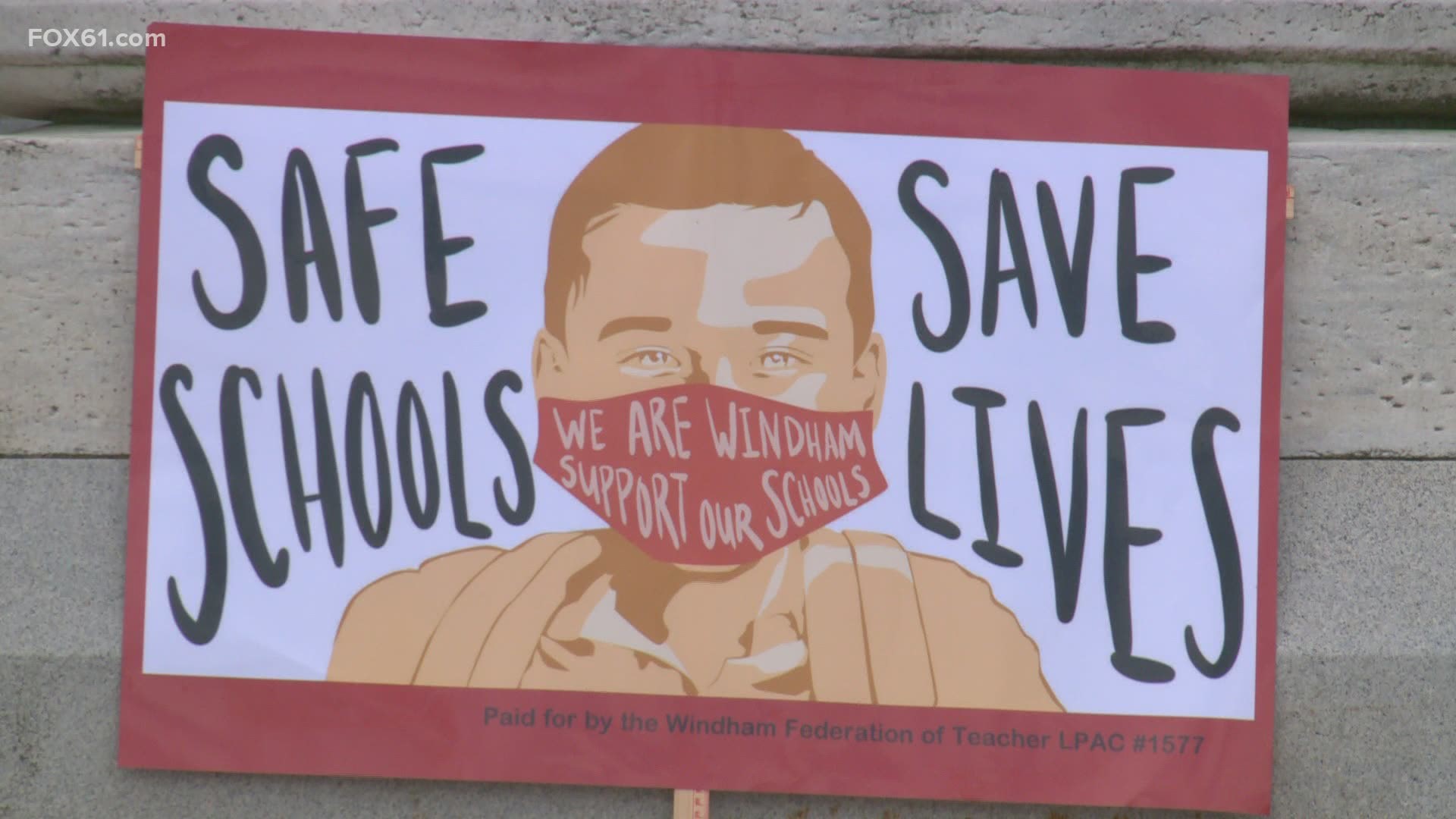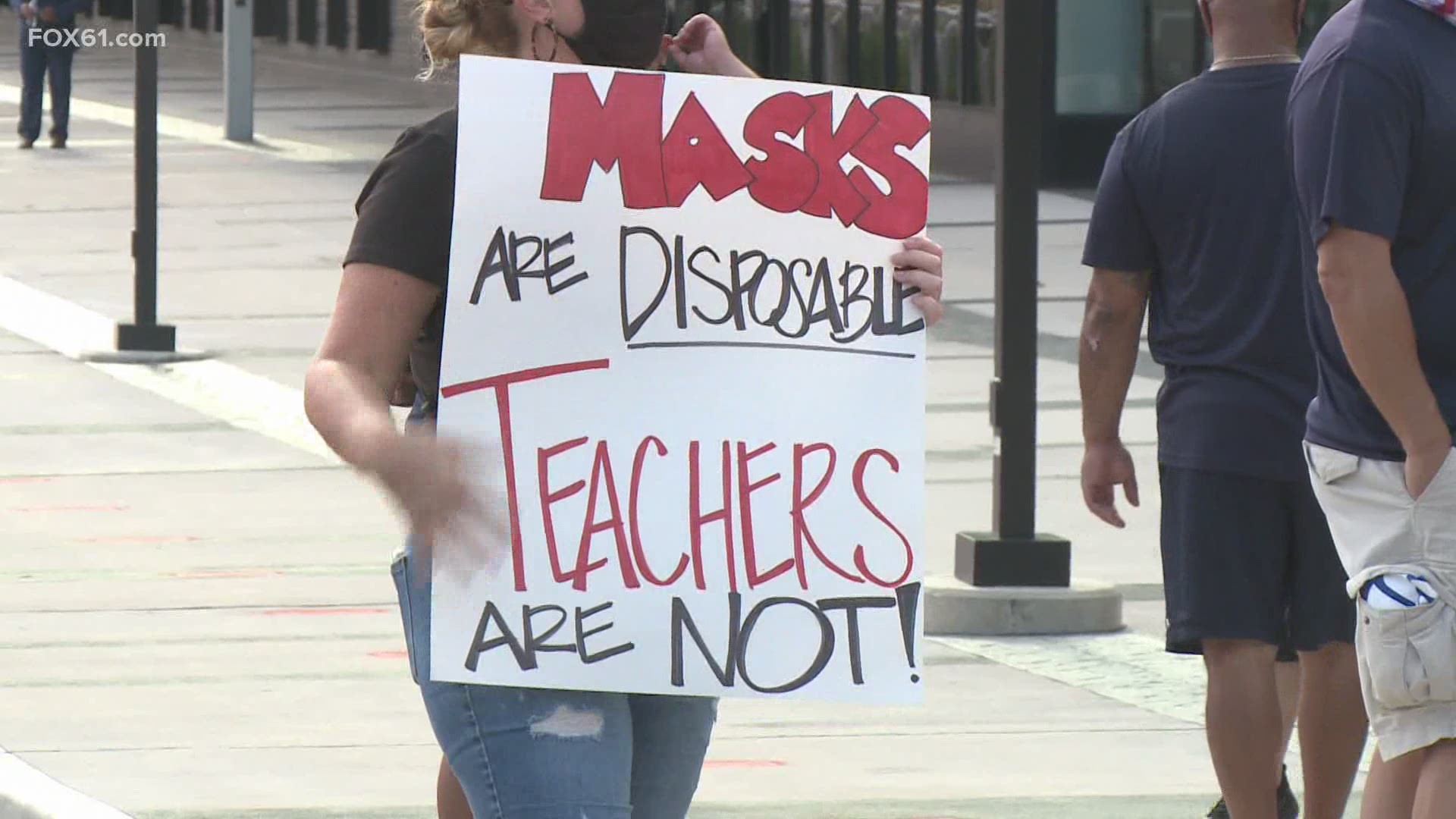HARTFORD, Conn — As the start of the school year gets closer, many educators and parents are worried about the uncertainty that lies ahead. Several groups from around the state, gathered at the state capitol Wednesday morning, to voice their concerns.
"The spread of it throughout the schools from the poor ventilation, people being too close, not having, enough funding to buy individual supplies for everybody and then of course how that is going to spread out throughout our communities," said Marisa Copley, a teacher in Windham.
The groups spoke out against the state's current re-opening plan, which allows school districts to welcome staff and students back for in-person learning.
"How are we going to send our kids back to a burning building, and other families, teachers, and staff into a burning building and we're not prepared yet?" said Lashawn Robertson, a Hartford mom.
Instead, some teachers and parents are calling for in-person learning to be phased in, and for online learning to be better than it was in the spring, through more training and support as well as proper funding, especially in districts that are already underfunded.
"We know that in our city we have higher class sizes, we have under-maintained buildings, we have less opportunity for outdoor learning," said Leslie Blatteau, a New Haven teacher.
An art installation was also created on the lawn across from the capitol, created by teachers who wanted to have visual representation of their concerns.
"There's so many differences from district to district and so many challenges that the districts are facing that the installation represents.
All of these people that are webbed into this process of reopening and how quickly it can get out of control when one person gets sick," said Carolanne Vining, an East Hampton teacher.
While the state says the current COVID-19 numbers give officials confidence about re-opening schools, some argue it's not enough.
"Flattening the curve is not an end point. It bought us some time but the real battle with this virus begins now, and it's surveillance, and it's trace testing, and it's eventually vaccination," said Dr. Robert Bayer of Yale New Haven Health.


